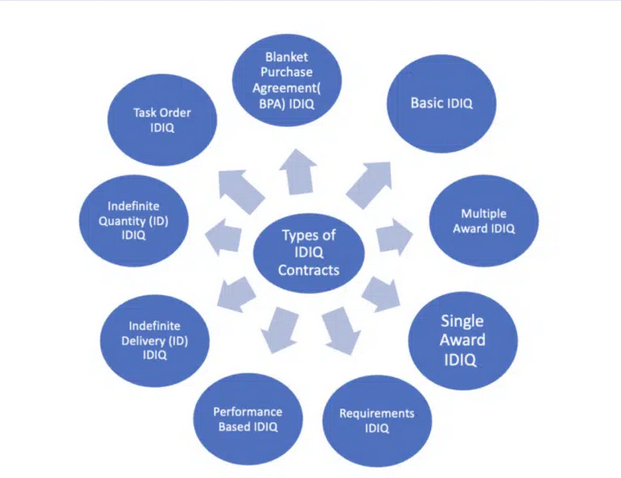IDIQ Contracts: Indefinite Delivery, Indefinite Quantity


Key Features of IDIQ Contracts:
The contract does not specify the quantity of goods or services that will be delivered. This enables the government to issue a purchase call for what it requires at any given time as long as the orders do not exceed the set limit. The government contracts have a defined period for which they are required to perform their duties usually in years. The government purchases task orders for services and delivery orders for supplies through the IDIQ contract. Each order details the amount of products or services required along with the scheduled delivery times.
The IDIQ contract contains a provision for a minimum guarantee that requires the government to purchase a specific amount of goods or services. The IDIQ contract features a restriction on the highest allowable purchase of goods or services by the government.
Understanding the Advantages of IDIQ Contracts:
Flexibility: IDIQ contracts give the government the flexibility to order goods or services they need at any given time. This is especially valuable in situations where the government requires goods or services that are not clearly defined or which are required at different times.
Efficiency: IDIQ contracts make it easier to conduct procurements since they remove the requirement for repeated bidding processes. This can result in cost savings to both the government and contractors during the procurement process.
Cost Savings: Through IDIQ contracts, the government can obtain goods and services more cheaply because providers offer better prices for extensive purchases.
Competition: Multiple-award IDIQ contracts create opportunities for several contractors to participate which results in better pricing and service offerings to the government.
Types of IDIQ Contracts: Single-Award IDIQ Contracts: These contracts are given to one contractor at a time.
Multiple-Award IDIQ Contracts: These contracts are awarded to several potential contractors at once. This option enables the government to select the most suitable contractor for each particular order.
Examples of IDIQ Contracts: GSA Multiple Award Schedule (MAS): The MAS is a government-wide acquisition contract that connects all federal agencies to a broad selection of commercial products and services at pre-negotiated prices.
Department of Defense (DoD) IDIQ Contracts: The Department of Defense implements IDIQ contracts to procure weapons systems, aircraft, and ships among other things.